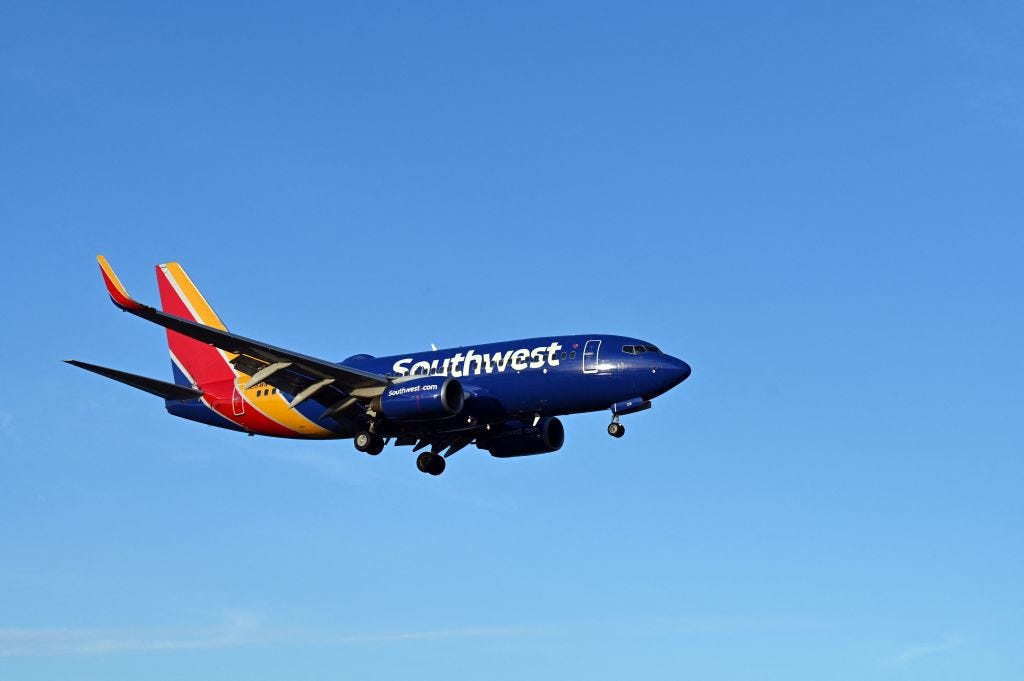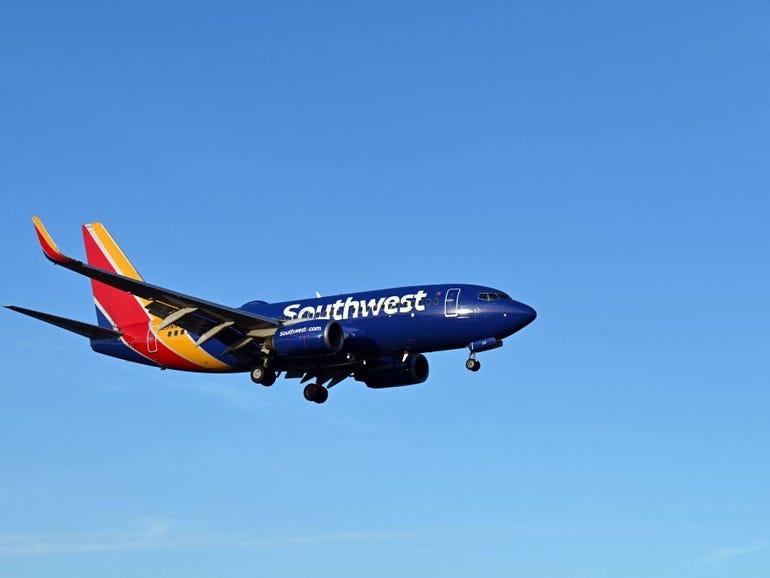
What is Southwest to do?
Daniel Slim / Getty
Let’s start with the good news.
Customers still adore Southwest Airlines. Well, relatively speaking.
The airline has canceled a lot of flights this year but, in the new J.D. Power 2022 North America Airline Satisfaction Study, Southwest remains the absolute favorite of economy class passengers.
For comparison, United Airlines came seventh. American Airlines, ninth.
There’s often been the feeling that Southwest is, as airlines go, not merely a fine airline to fly but a fine company to work for.
Currently, it’s desperately trying to hire as many people as it can, given the expansion of travel enthusiasm. It needs 10,000 more employees, including 1,200 more pilots.
You’d think, then, that quite a few people might want to work for Southwest.
It seems that they do. There is, though, one little problem. It’s a problem that clearly annoys Southwest’s management and has a considerable impact on the airline’s ability to give customers the sort of service they’d like to enjoy.
Why else would Southwest admit, the Wall Street Journal reported, that between 15% and 20% of those it hires simply don’t turn up? Ever.
Of course you’ve heard of ghosting. Of course you’ve done online dating.
Yet employment ghosting seems to be reaching a peculiarly epidemic proportion. Does every interviewer look at every prospective employee these days and wonder: “Will you even turn up?”
It seems there are many people who don’t bother. Which is insulting, but also would lead one to speculate why the practice is now so much more prevalent.
Perhaps they’re already holding multiple offers. Perhaps they’re getting better offers after accepting the one with Southwest. Ghosting still doesn’t make a human look good.
I fear, though, that there’s a further dynamic, one that doesn’t put companies in such a fine light.
How many times have you heard, in times gone by, job seekers say they never heard from a potential employer for weeks — or sometimes even not at all?
So why should employers get so upset when the practice is turned on them? And hasn’t technology driven us to an instant dismissal — as well as an instant desire — of anything and everything? Often without communicating that dismissal at all?
Potential employees have learned, too, that most companies now see them as completely dispensable. They might tell them they need them and love them, but the minute a company’s quarterly profits dip a little, the kneejerk reaction is to shed bodies. They make it sound like an obvious move.
The potential relationship between employer and employee is, therefore, tainted before it’s even begun.
The airline industry has a reputation for being among the worst. During the pandemic, airlines were swift to say goodbye to employees, while simultaneously taking billions from the government.
Perhaps, then, they’ve built a reputation as especially mercurial places to work. Should a recession arrive at the gate, employees know they’ll swiftly be canceled.
Still, 15-20% ghosting you may indicate you need to be more careful. Perhaps you need to adjust your pattern, or your wages.
I wonder if Southwest keeps note of those who don’t turn up — just in case their names turn up in the future. No, not on airline manifests, but on future job applications.
Then again, imagine the scene if an airline employee is on a flight and recognizes someone who didn’t turn up for their first day.
That would be an interesting conversation.


